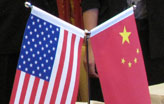Web Comments
Neighbors threaten China's peace
Updated: 2011-07-16 10:09
By Wang Hui (chinadaily.com.cn)
China has been dedicated to a peaceful external environment so that it can concentrate on domestic agendas, bring more welfare to the world's biggest population and remain committed to world and regional peace and stability.
Contrary to its desire, a spate of escalations in tensions at its doorsteps is constantly challenging its role as a low-key, broad-minded power. The latest round of tensions has stemmed from maritime disputes with countries in the region including Japan, the Philippines and Vietnam and fueled by outside forces such as the United States.
The current skirmishes between China and Japan over the sovereignty of Diaoyu Islands in East China Sea have been Tokyo's making. To reinforce the country's unreasonable claim on the islands, some Japanese fishing boats, orchestrated by the country's right-wing groups, deliberately went fishing in the adjacent waters on July 3. In the face of China's protest, the instigators had to leave in disgrace.
This is not the end of Japanese provocation. On July 4, Japan's air self-defense force sent F-15 fighters to intercept two Chinese military aircraft, which were flying in China's airspace some 60 kilometers away from the Diaoyu Islands. Statistics from Japan's ministry of defense indicate that from May to December last year Japan conducted 48 similar interceptions against China. In the first three months this year, Japanese interceptions had increased to almost 60 times.
If Tokyo does not refrain from staging such dangerous scenarios, a mid-air clash between the two militaries in the East China Sea can occur any time. If this were the case, it would change the nature of the Diaoyu Islands dispute and escalate it into a major conflict between Beijing and Tokyo. Beijing would be compelled to react strongly. Sino-Japanese ties would be seriously derailed. Such a result will serve neither country's interest, especially those of Japan's as the country is seeking Chinese support for its post-disaster rebuilding.
While a storm is simmering in the East China Sea, another has already gathered in the South China Sea. Before their foreign ministers flew to Beijing for consultations to defuse the tensions, both Vietnam and the Philippines had resorted to drastic moves in different forms to provoke China over the issue.
After their government pledged to solve the disputes with Beijing peacefully, Vietnamese protesters continued to stage demonstrations outside the Chinese Embassy in Hanoi. Anti-China sentiments are the highest in years in Vietnam at the moment. The country is scheduled to hold a joint military drill with the United States today. The two already held one last month amid tensions in the South China Sea.
For the Philippines' part, it seems ready for both negotiations and military confrontation. Philippine Foreign Affairs Secretary Albert del Rosario wound up a three-day visit to Beijing on Saturday. A joint statement released by the two governments on Friday said China and the Philippines would not allow rising tensions over conflicting claims in the South China Sea to hamper bilateral relations.
The agreement marks a welcoming sign in easing tensions. However, Manila needs to match its words with concrete deeds. There is ample evidence for Beijing to gauge that Manila intends to play the card of diplomacy and confrontation at the same time.
While the country's top diplomat arrived in Beijing on Thursday, Manila was engaged in an 11-day joint drill with the US starting June 28. This saber-rattling is not only a show of US-Philippine alliance but also targets China. Before his Beijing trip, Rosario went to Washington last month to seek more US military support. Upon his request, US Secretary of State Hillary Clinton was prompted to pledge that the US will provide "affordable material and equipment that will assist the Philippines military to take the steps necessary to defend itself."
All these indicate Manila is gathering chips for a military confrontation with China over the South China Sea issue. But, does Manila have the competence to do so? Will a showdown with Beijing serve its own interests?

Specials

China-US Governors Forum
The first China-US Governors Forum is held July 15 in the Salt Lake City, the United States.

My China story
Foreign readers are invited to share your China stories.

Rare earths export quota
China kept its export quota at almost the same level as last year.